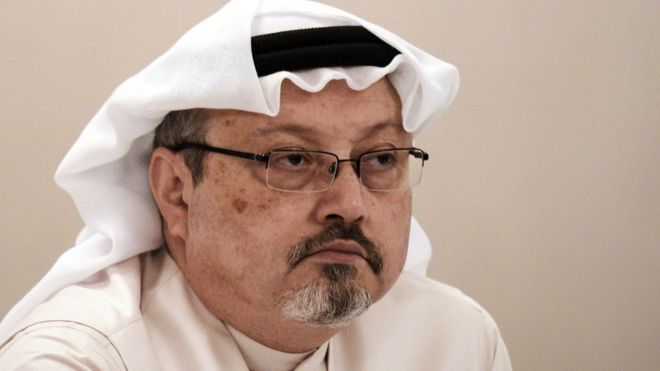 AFP
AFPA court in Saudi Arabia has sentenced five people to death and jailed three others over the murder of the journalist Jamal Khashoggi last year.
Khashoggi, a prominent critic of the Saudi government, was killed inside the kingdom's consulate in the Turkish city of Istanbul by a team of Saudi agents.
The Saudi authorities said it was the result of a "rogue operation" and put 11 unnamed individuals on trial.
A UN expert has concluded that it was an "extrajudicial execution".
Special Rapporteur Agnes Callamard said in June that there was credible evidence warranting further investigation that high-level Saudi officials, including Crown Prince Mohammed bin Salman, were individually liable for Khashoggi's death.
- The secret tapes of Jamal Khashoggi's murder
- Mohammed bin Salman: The man who controls Saudi Arabia
- Jamal Khashoggi: All you need to know about his death
The prince denied any involvement, but in October he said he took "full responsibility as a leader in Saudi Arabia, especially since it was committed by individuals working for the Saudi government".
A senior aide, Saud al-Qahtani, was sacked and investigated over the killing but not charged "due to insufficient evidence", the public prosecution said. Former Deputy Intelligence Chief Ahmad Asiri was put on trial but acquitted on the same grounds.
Following Monday's announcement Ms Callamard wrote on Twitter: "And the travesty of investigation, prosecution and justice continues."
How did Jamal Khashoggi die?
The 59-year-old journalist, a US-based columnist for the Washington Post, was last seen entering the Saudi consulate on 2 October 2018 to obtain papers he needed to marry his fiancée Hatice Cengiz.
After listening to purported audio recordings of conversations inside the consulate made by Turkish intelligence, Ms Callamard concluded that Khashoggi was "brutally slain" that day.

